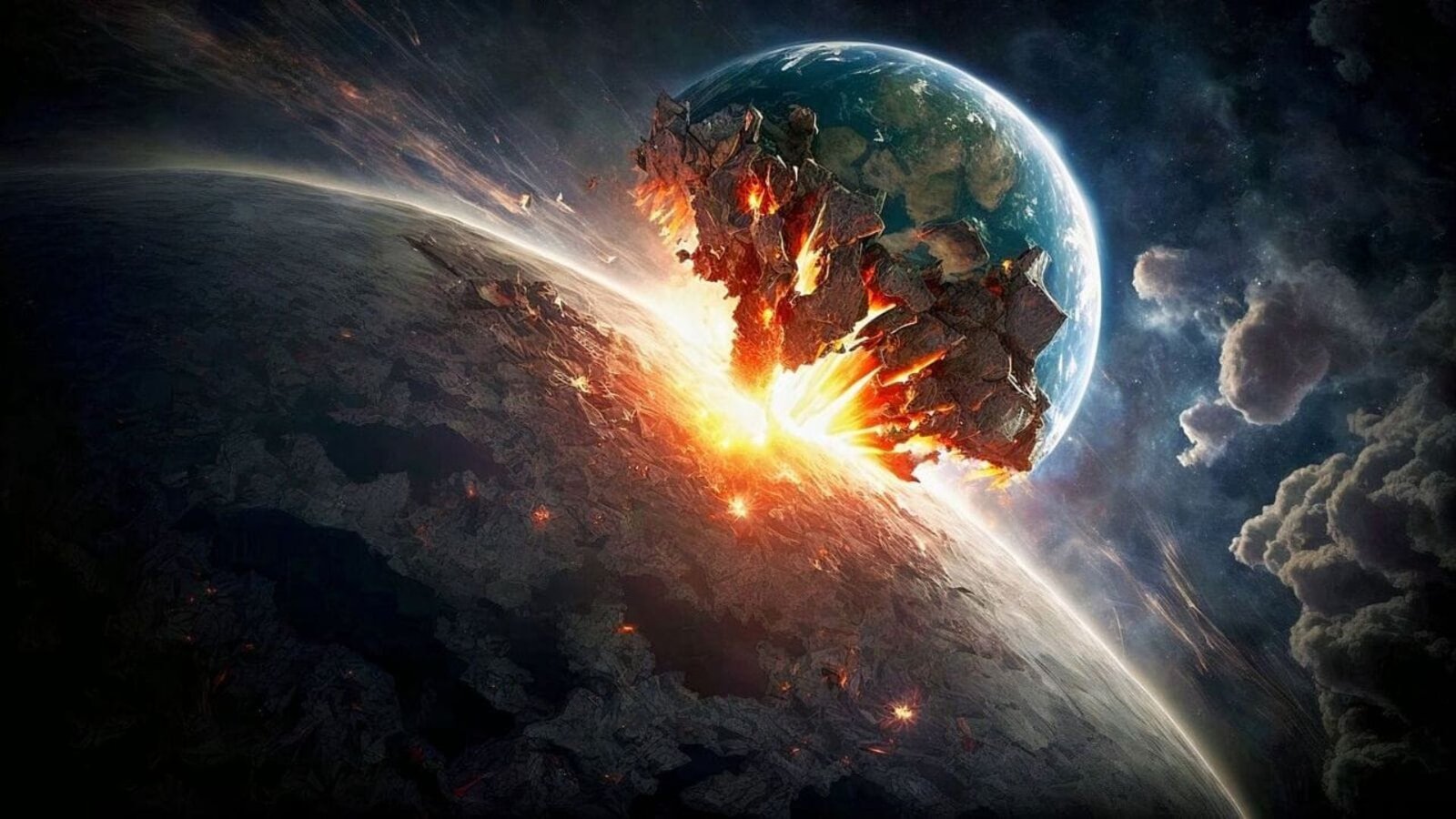The cosmos is a vast expanse filled with mysteries, one of which is the God of Chaos asteroid. As we delve into the question, “will God of Chaos asteroid hit Earth?”, we unravel the potential threats posed by celestial bodies. The God of Chaos, also known as Apophis, has garnered attention due to its close approaches to our planet. In this article, we’ll explore what we know about this asteroid, its trajectory, and the scientific consensus on the risk it poses.
Understanding the God of Chaos Asteroid
What is the God of Chaos Asteroid?
The God of Chaos asteroid is a near-Earth object (NEO) named after the ancient Egyptian deity Apophis, symbolizing chaos and destruction. Discovered in 2004, it was initially thought to have a significant chance of impacting Earth in 2029, leading many to wonder, “will God of Chaos asteroid hit Earth?” However, subsequent observations have greatly reduced this risk, providing reassurance about its
Characteristics of Apophis
| Feature | Details |
|---|---|
| Diameter | Approximately 370 meters |
| Composition | Primarily rock and metal |
| Orbit Period | 323 days |
| Closest Approach | 2029 (approximately 31,000 km) |
The Potential Threat of Apophis
Initial Concerns
When first discovered, Apophis raised alarms among scientists and the public alike. The initial calculations indicated a 2.7% chance of impact in 2029. This probability, although low, was alarming enough to warrant further study.
Updated Predictions
As more observations were made, astronomers refined their models. The 2029 impact probability was reduced significantly to nearly zero. However, Apophis will come remarkably close to Earth, offering a unique opportunity for study.
Future Encounters
- 2029: Closest approach, passing within 31,000 km of Earth.
- 2036: Initially thought to pose a risk, but calculations now suggest a safe trajectory.
- 2068: Current models predict it will not collide with Earth.
Scientific Analysis and Monitoring
How Do Scientists Track Asteroids?
NASA and various space agencies utilize telescopes and radar to keep an eye on NEOs. They assess their orbits and predict their future paths.
Key Technologies
- Ground-based telescopes: Monitor and track NEOs.
- Space missions: Such as NEOWISE, provide valuable data on asteroid compositions.
International Collaboration
Asteroid tracking is a global effort. Countries collaborate through organizations like the International Asteroid Warning Network (IAWN) to share data and develop response strategies.
The Role of Public Awareness
The Importance of Education
Understanding the realities of asteroids helps mitigate public fear. Educational initiatives can clarify misconceptions about the risks posed by NEOs.
Media Representation
Media often sensationalizes asteroid threats, leading to unnecessary panic. It’s vital to present balanced information, emphasizing scientific understanding over hype.
Real-Life Examples
In 2013, the Chelyabinsk meteor explosion illustrated the potential dangers of small asteroids, raising the question of “will God of Chaos asteroid hit Earth.” While this event was not related to Apophis, it highlighted the critical need for preparedness against such celestial threats.
Preparing for Potential Impacts
What If Apophis Were to Hit Earth?
While current predictions show no threat from Apophis, it’s worth considering the implications of an asteroid impact.
Potential Consequences
- Local devastation: An impact could destroy a city.
- Global effects: Dust and debris could lead to climate changes.
Mitigation Strategies
Should a significant threat arise, scientists are exploring various strategies:
- Deflection missions: Using kinetic impactors to change an asteroid’s course.
- Evacuation plans: Preparing for potential impact zones.
Notable Missions
- DART (Double Asteroid Redirection Test): NASA’s successful mission to alter the trajectory of a small asteroid, showcasing deflection technology.
What Asteroid Will Hit Earth in 2024
Currently, there are no asteroids predicted to hit Earth in 2024. Scientists and astronomers continuously monitor near-Earth objects (NEOs) to assess their trajectories and potential threats. Among the many asteroids cataloged, some will make close approaches, but none are on a collision course with our planet in the near future.
For instance, NASA’s Near-Earth Object Observations Program employs advanced telescopes and radar technology to track these celestial bodies. Although asteroids like 2023 DZ2 and 2023 BV1 may come close, their calculated paths indicate no risk of impact.
Public awareness and scientific vigilance are vital for planetary defense, especially when considering questions like “will God of Chaos asteroid hit Earth.” Organizations around the world collaborate to share information and refine detection methods. These ongoing efforts ensure that any potential threats, including NEOs like Apophis, are identified well in advance. As of now, Earth remains safe from asteroid impacts in 2024, allowing us to focus on other pressing global challenges.
Conclusion: The Future of Asteroid Monitoring
In conclusion, while the question “will God of Chaos asteroid hit Earth” has sparked concern, current data indicates that it will not impact our planet. Continuous monitoring and international collaboration will ensure that we stay ahead of potential threats. The scientific community remains vigilant, ready to tackle any future risks associated with near-Earth objects.
Final Thoughts
The universe is unpredictable, but with advancements in technology and a commitment to scientific inquiry, we can mitigate the risks posed by celestial bodies. As we continue to explore the cosmos, our understanding of asteroids like Apophis will deepen, ensuring our planet’s safety.
This comprehensive analysis has aimed to address the question, “will God of Chaos asteroid hit Earth?” by providing insights into its characteristics, potential threats, and the scientific community’s response. The continued study of near-Earth objects (NEOs) is crucial for planetary defense and public safety. Let’s stay informed and prepared for whatever challenges the universe may present, including the question of whether the God of Chaos asteroid will hit Earth.










